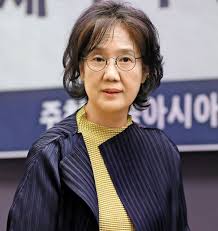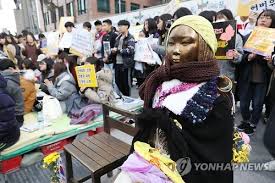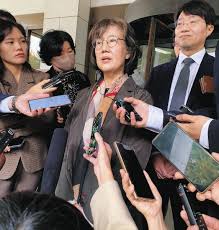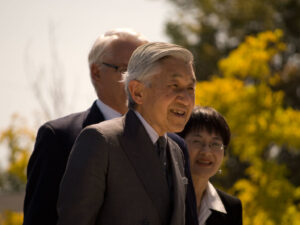A scholar must first consider whether or not his or her research is in the interest of the nation. If they forget to do so, they are not entitled to protection. Around the time of the indictment of Park Yoo-ha, a professor at Sejong University who wrote “Imperial Comfort Women,” in 2014, a progressive (revolutionary) figure said this on the radio. It was a totalitarian statement denying academic freedom. I took notes in the cab because of the astonishing statement. What is even more astonishing is that no one on the show complained. I read “Comfort Women of Empire” in one breath on the day it was delivered to me in 2013. Written by a humanities professor who was not a historian, the book dealt broadly not only with Korea but also with Japan, Southeast Asia, and the Netherlands, and was about state power and capital exploiting women’s bodies and the women in it. It was a feminist perspective. It was also painfully direct in many areas. The book compared interviews with various media outlets and also pointed out that the testimonies of comfort women survivors have changed over the years. The age at which they said they became comfort women gradually became younger and younger, and after several interviews they changed their story from “I went there to earn money” to “I was taken there one day out of the blue. The victims are not accusing them of being liars or voluntary prostitutes. It is difficult to maintain consistency in the testimonies of victims of the distant past. There are many reasons for this, including trauma, aging, and political position. Park Yuha has gone beyond the limits of personal statements and analyzed the Japanese “comfort women mobilization” system, a war crime, through documents. Foolish fathers in the colonies pushed their daughters to “go and earn money,” while distant relatives living in the town intrigued the innocent women. Of course, there were girls who seemed to have been taken by force and women out of wedlock who went to earn money. This is not the kind of thing that would happen if the country were strong enough. The “forced voluntarism” proves that colonial rule was strictly routine violence. This is not to say that Japan was not responsible. Surprisingly, a “righteous” group that helps the Harmonis, the “Para-Taiko Association,” has put its life on the line to fight this issue. They excerpted sentences, broke off the back and forth of the story, and framed Park Yuha as a “traitor. Around that time, I began to have doubts. The various men and women scholars who had studied comfort women in the early days had been kicked out, and before long it had become a “friend business” in which the Para-Partisan Association had taken control of some of them. After the attack on Park Yuha, the keyword “comfort women” was sensitively spread more and more through the idol of the “girl statue” and received even greater public support. From a business perspective, this is very good marketing. Defendant Park Yuha retired while attending court, and Yoon Mi-hyang, who rose from co-chair of the Para-Taigi Council to a member of the National Assembly, also became a defendant in the embezzlement case. In a country where candidates for public office are acquitted of lying on live TV on the grounds that “an impromptu lie in response to a question cannot be considered a lie,” the government is not afraid of the truth. Even when the media raids media outlets that are indulging in mass production of fake news, the logic that “the media puts a gag on speech” is invoked. It even guarantees the “freedom to tell lies,” but if they are labeled “pro-Japan,” they are buried alive. The left, in a nutshell, performs the differentiation. Park Yuha’s book is not a brilliant piece of research. Sentences like “(the role of comfort women) was a homeland role that included sexual comfort (ibu)” are hard to swallow, packaging sexual exploitation with “pathos.” Still, it is totalitarian violence to intimidate scholars because they do not think like the Para-Paratroopers and do not speak like Yun Mika. This kind of existence, not the Taegeuk troops, constitutes “far right” or “far left”. The same professors, scholars, and discourse turned a blind eye to this violence. They feared that the stick with which they would beat Park Yuha would be pointed at them. The press was among the crowd. On October 26, the Supreme Court reversed the original ruling against Park Yuha (fined 10 million won [$1.1 million] for defamation of character) and sent the case back to the Supreme Court with a view to acquitting him of the charges. The presiding judge, Grand Chancellor Roh Jeong-hee, is a leading progressive judge. Park Eun-ju, Deputy Director and Editor











